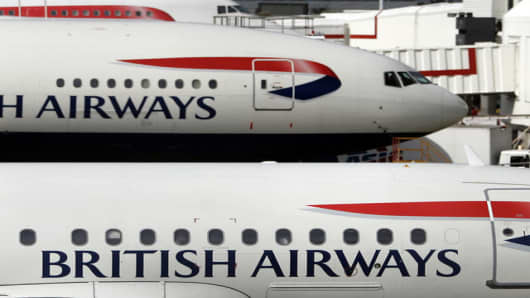The chairman of British Airways has launched an attack on “completely redundant” airport checks and said the UK should stop “kowtowing” to US demands for increased security.
The comments by Martin Broughton reflect broader industry and passenger frustration over the steady accumulation of rules on everything from onboard liquids to hand baggage that have blossomed since the September 11 terrorist attacks.
In remarks at the annual conference of the UK Airport Operators Association in London on Tuesday, he said the practice of forcing people to take off their shoes and have their laptops checked separately in security lines should be ditched.
Mr Broughton said there was no need to “kowtow to the Americans every time they wanted something done” to beef up security on US-bound flights, especially when this involved checks the US did not impose on its domestic routes.
“America does not do internally a lot of the things they demand that we do,” he said. “We shouldn’t stand for that. We should say, ‘We’ll only do things which we consider to be essential and that you Americans also consider essential’.”
The US required extra passenger checks at international airport gates after a Nigerian man tried to detonate a device hidden in his underwear on a flight to Detroit in December, a move some European airlines say unnecessarily duplicates existing checks.
Colin Matthews, chief executive of BAA, owner of Heathrow, agreed there was a need to review the government’s existing security programs. He told the Financial Times: “Today’s arrangements are incremental and I think there is a case for saying let’s start from a clean sheet of paper to achieve what we want to achieve.”
Mr Broughton said no one wanted weak security, but added: “We all know there’s quite a number of elements in the security program which are completely redundant and they should be sorted out.”
These included the requirement to remove footwear, brought in after British “shoe bomber” Richard Reid hid explosives in his shoes on a transatlantic flight in 2001, and differing approaches to checking laptops and other equipment.
“Take the iPad. They still haven’t decided if it is a laptop or it isn’t a laptop. So some airports think you should take it out and some think you shouldn’t,” Mr Broughton said.
The US Transportation Security Administration is thought to regard shoe examination as a key part of a security sweep because of things such as explosives that may be hidden in them.
At one time, new technology was installed at BA’s home airport of Heathrow that meant laptops did not have to be checked separately, but then the government decided they should be, so the rules came back in again, he said. “It’s just completely ridiculous.”
Philip Hammond, the British transport secretary, has said he wants a new regulatory system under which the government would set security outcomes and operators would come up with processes to deliver them.
However, the Department for Transport added that these had yet to be finalized and there were no plans to change rules on checking shoes and laptops.
The TSA told the FT in response to Mr Broughton’s comments that it worked closely with international partners to ensure the best possible security. “We constantly review and evolve our security measures based on the latest intelligence,” it said.


